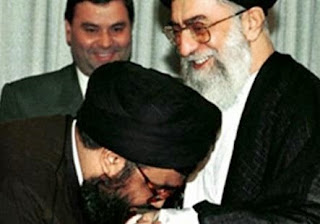The House of Representatives passed
H.R. 2297, the Hezbollah
International Financial Prevention Act of 2015, which would strengthen economic
sanctions against Hezbollah, a terrorist organization that continues to pose a
threat to the United States, and its allies, and interests throughout the
Middle East and beyond.
H.R. 2297 takes a comprehensive approach to addressing the threat posed by
Hezbollah by imposing severe new sanctions on Hezbollah’s fundraising channels
and restricting its ability to use its funds to support global terrorist
activities. The legislation also targets Hezbollah’s media appendage, al-Manar,
and forces other critical designations to undermine the terrorist
organization’s illicit activities.
Royce, Chairman of the House Foreign Affairs Committee,
said: “Years ago Hezbollah was a limited, regional threat. Today, it is a
global threat conducting terrorist and criminal activities all over the world”.
H.R. 2297 requires the Administration to provide a
comprehensive overview of countries supporting Hezbollah, including those
governments that are not taking adequate efforts to disrupt Hezbollah’s global
logistics networks.

Hezbollah was founded by the Iranian regime’s Revolutionary
Guards (IRGC) soon after the 1979 revolution in Iran. The group is fighting in
Syria to save the Bashar al-Assad regime. On November 2014, the Iranian
regime’s Revolutionary Guard (IRGC) boasted of how it has supplied Lebanese
Hezbollah with missile systems. In January 2014, the current Iranian regime’s
Foreign Minister Mohammad Javad Zarif laid a wreath on the grave of
ImadMughniyeh, a principal leader and operative that served in Hezbollah’s military
for several years. Imad Mughniyeh was the main man behind the 1983 Beirut
bombing of the Marine Barracks in Lebanon.
Hussein Salami, Deputy Commander of the Iranian regime’s
Revolutionary Guards admitted the regime’s meddling in
Yemen as well as other
countries of the region by creating proxy groups. He stated that groups like
Hezbollah are no longer in only in Lebanon but today such forces have been
formed in Yemen and Syria.
Saudi Arabia asked on November 2014, the U.N. Security
Council to put Hezbollah on its list of 'terrorist organizations'. 'We call on
the council to place Hezbollah on the list of terrorist organizations,' Saudi
envoy to the Security Council Abdallah Al-Mouallimi said.






































